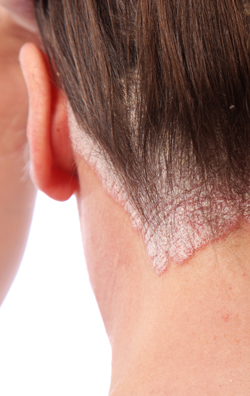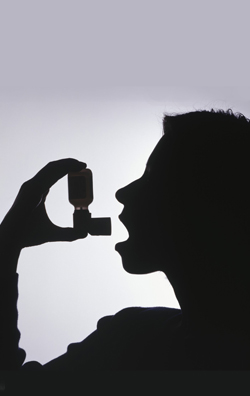
Psoriasis is a chronic inflammatory skin disease characterized by redness of the skin, with a sharp round solid elevation of the skin without fluid, covered by silver scales. The affected area may be producing itching. It is still not clearly understood the right cause of psoriasis, but considered to be an autoimmune disorder. Psoriasis affects up to 30% of individuals. It is a noncontagious disorder which affects the skin and joints.
What is psoriasis?
Psoriasis is a long-term skin disease characterized by thick, white, silvery, or red scaly patches, papules, and plaques, are formed on the skin usually with itching. The psoriatic patches may be localized in a small area or may cover completely.
Plaque psoriasis
Out of five known types of psoriasis, Plaque psoriasis is the most common one. Plaques can affect any part of the body, often seen on the skin of the elbows and knees, but it can also be seen on the scalp, palms, soles, and genitals. Sometimes psoriasis can also affect the bone joints, which is Known as psoriatic arthritis. The nail of the Fingers and toes are also often affected. The scaly patches caused by psoriasis is called Plaque psoriasis
Symptoms
-Plaque occurs more on the skin of the elbows, knees, scalp and genital area.
-Thick, white, silvery, or red and raised scaly patches are seen at the affected area.
-Disfigured or pitted nails
-Dry and cracked skin and may bleed on stretching
-May have Itching and burning sensation.
What happens in psoriasis?
Silvery-white skin is formed at the plaque site due to the rapid growth and collection of skin cells.
Usually skin cells are replaced about every 28-30 day, but in psoriasis new skin cells move rapidly to the surface of the skin in 2-3 days as it is often seen in wound healing.
Cause of Psoriasis
Though the exact cause is not understood, it is believed that psoriasis is developed due to over activity of the immune system, causing inflammation and flaking of skin. In some cases, psoriasis runs in families. Scientists have identified certain mutated genes that are involved in the development of psoriasis when activated by environmental factors.
Flare up of symptoms
Usually symptoms disappear even without treatment, and then it may return. Psoriasis can flare-up in cold and dry climate, infections, stress, dry skin, certain medicines or certain type of food, etc.
Psoriasis: Treatment
-Treatment depends on the type, location, severity and duration of disease.
-Mild cases are treated with skin care to keep the skin moist with creams and lotions.
-Treatments includes ultraviolet light, topical vitamin analog of D and A and medicines your doctor prescribes.
-In some cases treatment for psoriasis cannot be stopped and has to be continued for lifetime.
Treatment of psoriasis in some cases becomes difficult. Therefore, identifying the exact combination of treatment becomes essential.





